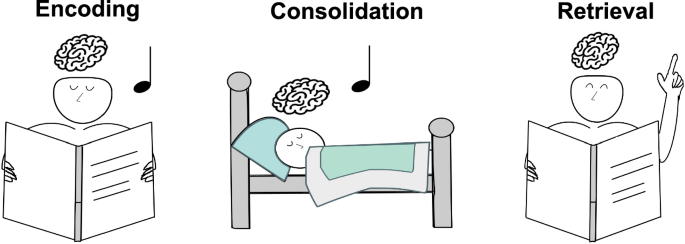
Sleep plays a crucial role in learning and memory, yet many students sacrifice it in favour of late-night study sessions. While staying up to cram may seem productive, research shows that a lack of sleep negatively impacts focus, retention, and problem-solving skills. Understanding the connection between sleep and learning can help students develop better study habits and improve academic performance.
One of the most important functions of sleep is memory consolidation. Throughout the day, the brain absorbs vast amounts of information, but it needs time to process and organise it. During sleep, particularly in the deep and REM (rapid eye movement) stages, the brain strengthens new connections, transferring information from short-term to long-term memory. Without adequate sleep, students struggle to retain what they’ve learned, making revision less effective. This is why pulling an all-nighter before an exam can do more harm than good. Even if students feel like they’ve covered more content, their ability to recall and apply that information is significantly reduced.
Sleep also plays a key role in problem-solving and critical thinking. When well-rested, the brain is better equipped to make connections between ideas, analyse complex problems, and apply knowledge in different contexts. This is particularly important for subjects like mathematics, science, and essay writing, where students need to think logically and creatively. A tired brain, on the other hand, struggles to focus, leading to more mistakes and frustration.
To optimise learning, students should aim for 7-9 hours of quality sleep each night. This means maintaining a consistent sleep schedule, avoiding screens before bed, and creating a relaxing bedtime routine. Power naps of 10-20 minutes can also be beneficial, especially after intense study sessions, as they provide a mental refresh without causing grogginess.
Prioritising sleep is not a sign of laziness but an essential strategy for academic success. By making rest a non-negotiable part of their routine, students can improve memory retention, enhance problem-solving skills, and ultimately perform better in their studies.
Freddie Le Vay

